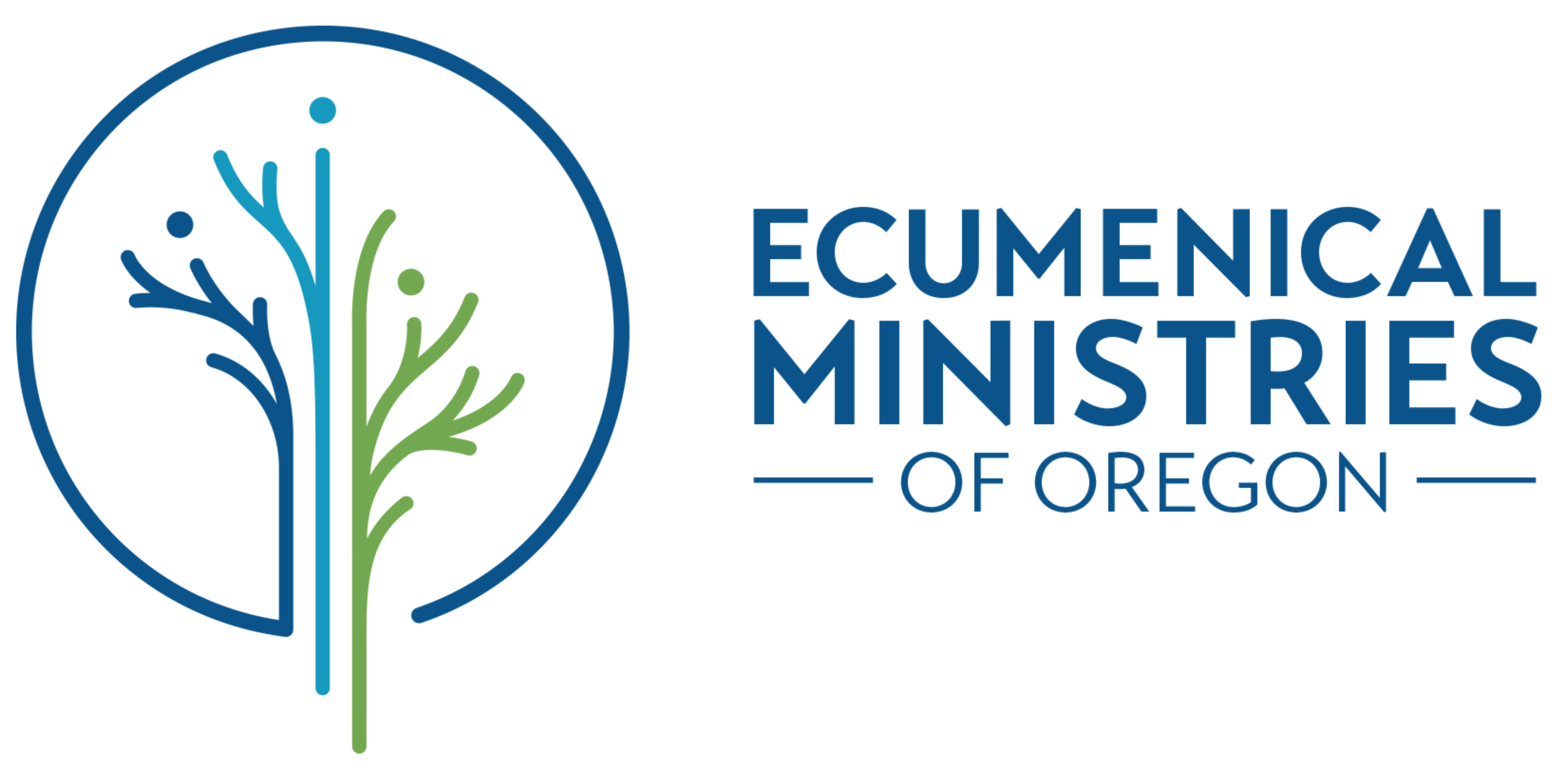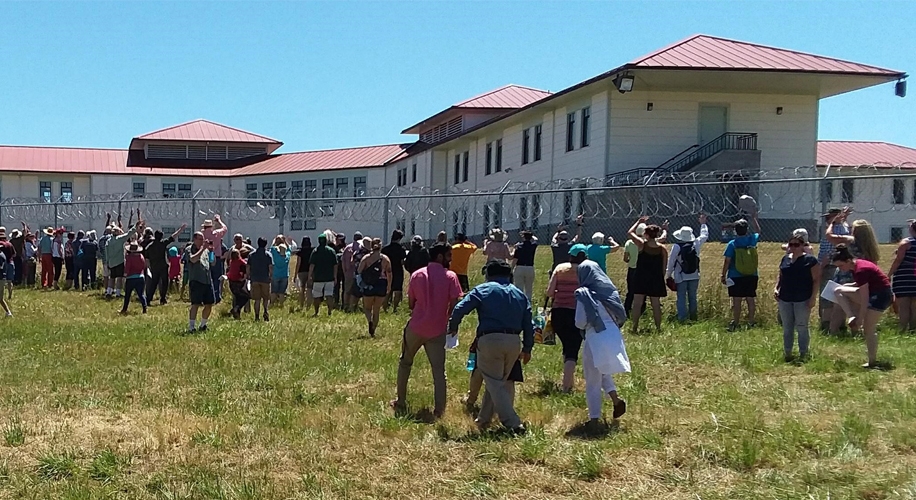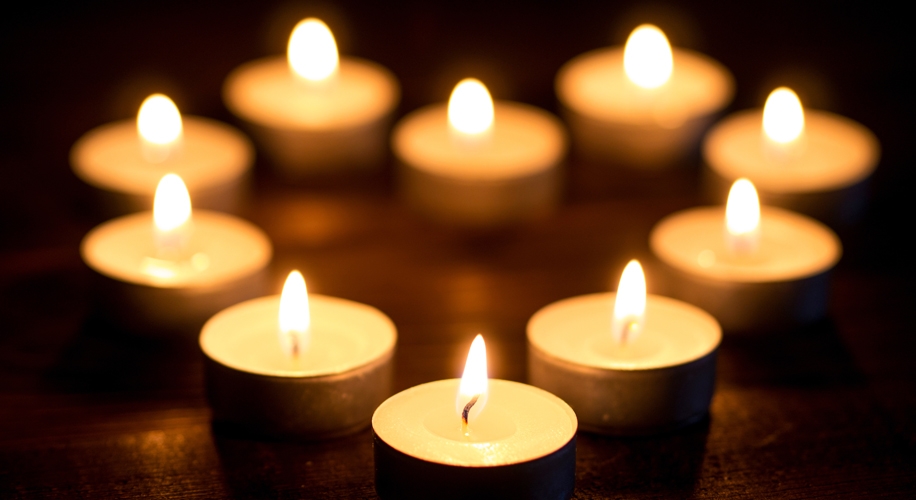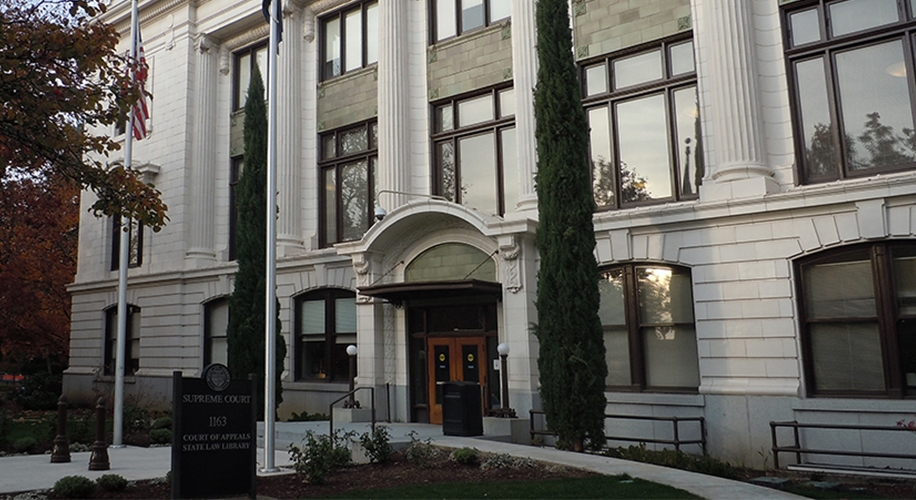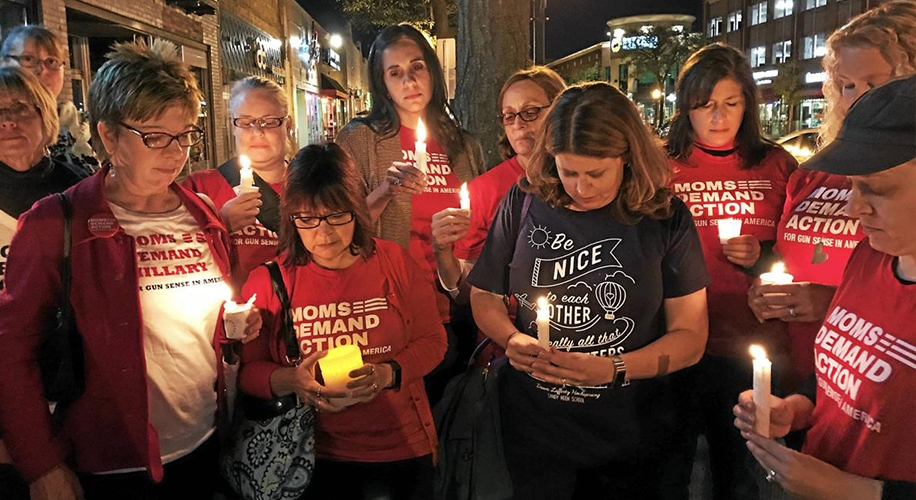Standing at the prison fence
This past Sunday, I participated in the interfaith worship service held just outside the fence to the federal prison at Sheridan, Oregon, hosted by IMIrJ and concerned clergy. It was a powerful time to remember the long traditions our religious teachings gift us with, about showing hospitality for migrants, honoring the needs of the vulnerable, and remembering when we ourselves needed kindness from strangers.
The hot sun beat down but the spirits were high, as we sang and prayed and devoured the delicious meal prepared and served by our Sikh sisters and brothers, who have been particularly active in this movement.
We also spent a lot of time waving. Men inside the prison were able to open their windows part-way and stick out hands or small flags and wave at us. So we waved back at them.
I was aware that the men waving back at us were not likely only detained migrants. They were likely also many of the men housed at the prison for federal crimes. It is my hope that those men, as well as the correctional officers and other staff, all felt surrounded by our prayers.
It may have been the nation’s broken immigration system that motivated most of the attendees at the worship service, but I hope that standing on the fenced border of a federal prison helps raise everyone’s awareness about the intersections of our work for justice – inside, outside, and all around.
“No one is free when others are oppressed,” goes the saying.
In particular, I was struck by the realization that until we achieve a revolution of values about criminal justice issues, we will not achieve justice for migrants. Because as long as we allow our minds to hold a category of human beings as unworthy of our compassion, as beyond the limits of human dignity – whether we label them “criminals” or “illegal” or “non-citizens” or any other label that justifies robbing them of dignity – then we are not one community, and it will be too easy to dehumanize someone. It is too easy to throw the label of “criminal” or “illegal” at anyone who doesn’t fit “our” rules and laws.
Borders can always be re-drawn, and new walls can be built, if the goal is leaving someone out.
What people of faith need to be able to say is that even a criminal history does not make someone deserve to lose their dignity, lose their humanity, or lose connections to loved ones and community. Why would someone doing something illegal mean that we are justified in treating them disrespectfully (let alone violently)? Why would legality trump morality in ordering our life as a people?
If we can learn to extend that compassion to people who sit in prisons and jails, then we should be able to extend that compassion to others. And until we extend that compassion, we won’t live up to a higher Law.
As we said in the prayer at the prison, “only love fulfills the law” – of our Creator, if not humanity.
If you believe that solidarity, reform, and relationship are not only important but part of our FAITH experience, please join us. Consider donating to support our work of education, outreach, and advocacy. Reach out to us to let us know you care. Pray for us. We need each other.
The voices of people of faith are needed in conversations about justice for all, especially at the intersections of issues where the fundamental testament of our common humanity is the unifying theme.
